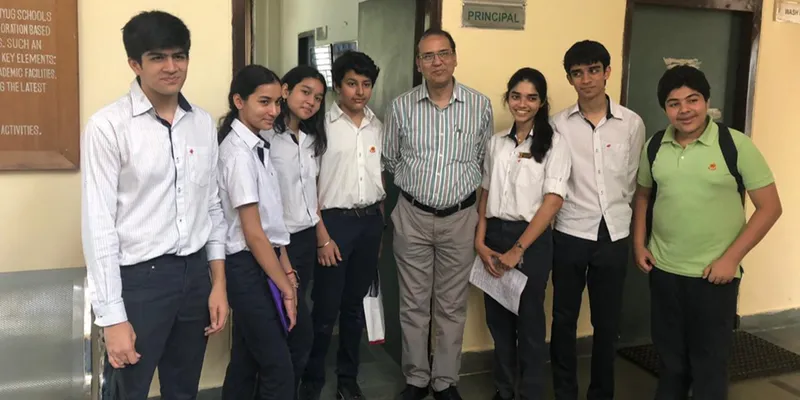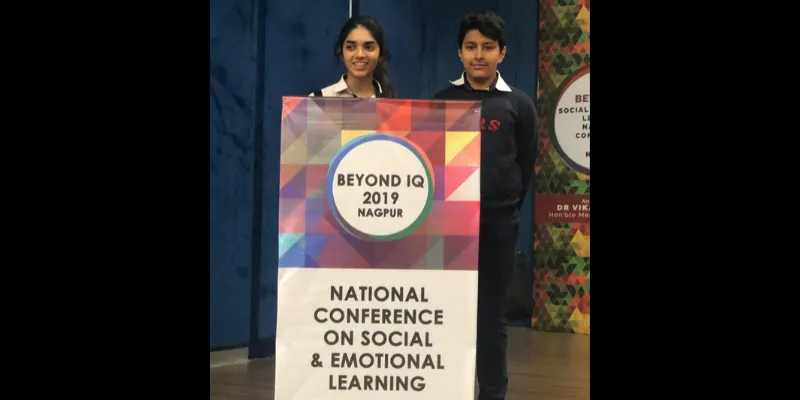Meet the 17-year-old who is advocating quality mental healthcare for all
Apoorvi Bharatram, along with a fellow-student, started the Happiness Project that follows a simple three-step model to help gauge the happiness quotient of students in government schools, and uses the same data to train the teachers to become ‘Para-Counsellors’.
The World Health Organization (WHO) states: "Health is a state of complete physical, mental and social well-being and not merely the absence of disease or infirmity."
This definition implies that mental health is an integral part of a person’s wellbeing. Data shows that 10-20 percent of children and adolescents experience mental disorders worldwide and over half of all mental illnesses begin by the age of 14. Mental health is essential to think, emote, interact with each other, study, work, and enjoy life. In this regard, access to quality mental healthcare should be a right for all.
Apoorvi Bharatram came to this realisation when she was as young as 16. Growing up, she had seen her sister battle with clinical depression. The experience made her more sensitive towards the topic of mental health and instilled in her a want to ensure that everyone has access to good care. She also understood the importance of mental health professionals and counsellors in tackling the problem.

Apoorvi Bharatram along with fellow students and her principal
But when she did a deep dive into the ecosystem, she realised access to quality mental healthcare was a privilege not available to many. Apoorvi was struck by the lack of awareness and dearth of mental health professionals in government schools.
“There was no support system for these students. They had nobody they could talk to. Noone was willing to help,” Apoorvi says.
So, Apoorvi with the help of another student from her school, started the Happiness Project to help students gain access to adequate mental healthcare. The initiative follows a simple three-step model that helps gauge the happiness quotient of students in government schools and then uses the same data to train the teachers to become ‘Para-Counsellors’.
The mental health test collects data on issues like depression, anxiety, substance abuse and body-image issues. This in turn is used to convince teachers about the gravity of the problem. The project partners with NGOs and individuals to equip teachers and administrators with the tools required to address mental health issues.

Apoorvi Bharatram
“Our aim is to safeguard the mental health of students and this has to begin with schools and teachers. It is essential to sensitise and upskill these critical stakeholders to deal with mental health problems,” she says.
More than a year into the Happiness Project, Apoorvi has seen an increase in awareness of mental health-related issues among the school management, teachers, and also the students. The project has so far worked with several schools and helped hundreds of students. With the data collected, they are hoping to convince the government of the need for mental health professionals and regular training of teachers in all government schools.
“Good mental healthcare can help adolescents enhance their social skills, improve their problem-solving capacity and gain self-confidence – which in turn may alleviate mental health problems and discourage risky and violent behaviour,” Apoorvi says.
Apoorvi was selected to be a part of Ashoka’s “Everyone a Changemaker” initiative. This platform gave her a chance to connect with like-minded individuals and scale her project.
She has also been accepted into the University of Pennsylvania and is planning to pursue a degree in psychology. The young girl wants to amplify her efforts and give back to the cause. She hopes that one day access to good mental healthcare will be a reality for all.
(Edited by Rekha Balakrishnan)







